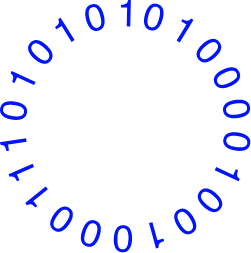In 2020, Coca-Cola sold 29-billion-unit cases worldwide. In the North American market alone, Coca-Cola was able to sell 3.34-billion-unit cases of sparking soft drinks. This means, just in the US market, 76.17 billion pieces of aluminum cans or plastic bottles filled with Coa-Cola’s “Soda Sparkling drinks” were sold in the US. (One unit case has 24 individual drinks in one case)
Now for a second imagine that half of the packaging used by Coca-Cola is Aluminum cans. This means 38.5 billions cans of ‘sparking soft drinks’ were sold in the US market. So, what happened to these 38.5 billions cans after they were purchased by consumers (households) and businesses (offices, hotels etc.)?
Did we recover the 38.5 billion cans via recycling? How many did we recover? How many did Coca-Cola reuse in making new cans? How many went to the landfill?
As a reader, you may wonder why we should care about recovering and reusing discarded cans in making new aluminum cans? This is because, when we make one ton of “new aluminum cans” we produce 11.09 tons of CO2 emissions. This is equivalent of a US household’s electricity consumption for 5.2 months (4616 KWH produce 11.09 tons of C02 emissions). CoCa-Cola must plant and grow 323M trees a year to offset their CO2 emissions. Bloomberg recently reported that campaigns to plant millions of trees have become popular urban responses to climate change. But many have fallen far short of their goals. So we cannot ‘plant new trees’ our way to counter the CO2 emissions.
After nearly 4 years of R&D, we launched RecycleOS – World’s first operating system built from the ground up to increase recovery from recycling plants (MRFs) and enable reuse in manufacturing so that we can continue to sustainably live our life while slowing climate change.
Today, we have the technologies to track every single object in the recycling plant. Every CPG brand knows how many units of their products were sold; now they can also know how much of their packaging has been recovered and reused immediately using our platform. There absolutely zero reason for not making new packaging using 100% recycled content as there is enough material available for recovery cost effectively.
Procurement teams now can control their costs and supply chain by tapping into materials that are right in front of their eyes at the source (MRFs) locally. Our platform seamlessly connects the dots between CPG brands, packaging manufacturers and recycling plants. Thus, slowing climate change as carbon footprint drops sharply for using recycled cans, plastics and fibers.
Let’s take a data driven approach to measuring your Environmental and Social aspects of ESG as now you have the right information to act at your fingertips. Every CPG brand now truly have a data driven wingman (EverestLabs) to help them accomplish their sustainable procurement goals. We are with you in this together.
Sources: Coca-Cola 2020 Annual Report, EPA, Reuters, EverestLabs R&D, Environmental Defense Fund
